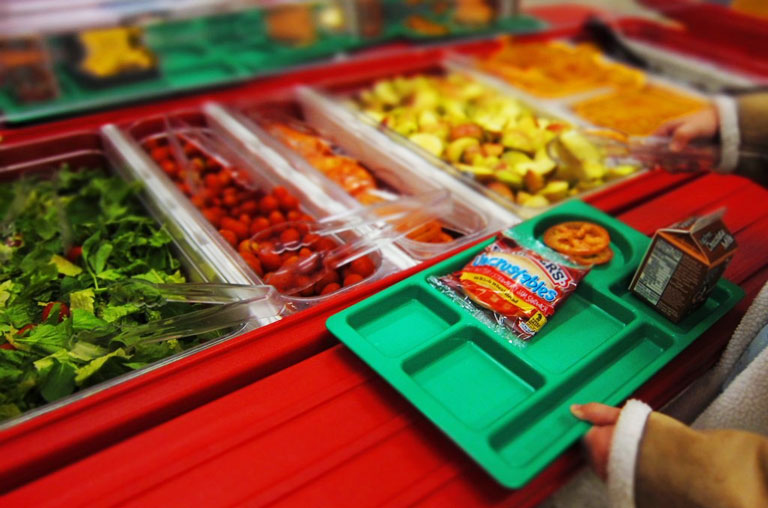Over the past two years, at least 31 cities across America have taken steps to ban or restrict efforts by churches and charities to share food with the homeless, according to a new report by the National Coalition for the Homeless (NCH).
Fort Lauderdale, Florida. is just the latest example. After an ordinance that was approved by the city commission went into effect Oct. 31, police issued tickets to members of the group Love Thy Neighbor for handing out lunches in a local park.
Arnold Abbott, founder of the organization, told a local newspaper that he had only given out three or four of the 300 meals the group had prepared before receiving a summons from the police. Two local ministers also received fines and were ordered to appear in court.
“We are simply trying to feed people who are hungry,” Mark Sims, of St. Mary Magdalene Episcopal Church of Coral Springs, told the Sun Sentinel newspaper. “To criminalize that is contrary to everything I stand for as a priest and a person of faith.”
Fort Lauderdale’s new law functions similarly to many other measures described in the NCH report, “Share No More 2014.”
The paper includes examples of efforts to restrict, ban or relocate food-sharing programs from Alabama to Washington State. The measures include placing new restrictions on the use of public property, introducing stricter food safety regulations, limiting the number of volunteers who can participate or the kinds of food they can serve, or requiring permits to share food.
Fort Lauderdale’s new law limits the places where outdoor feeding sites can be located. It also requires that groups provide portable toilets and obtain the permission of property owners in order to share food.
Public officials who support such restrictions sometimes justify them by saying the feeding programs encourage homelessness or pose risks to health and safety. In other cases, they say that their jurisdictions have too many food sharing programs, leading to waste.
Fort Lauderdale Mayor Jack Seiler said food sharing in the city has contributed to the problem of homelessness.
“I’m not safisfied with having a cycle of homelessness in Fort Lauderdale,” Seiler told the Sun Sentinel. “Providing them with a meal and keeping them in that cycle on the street is not productive.”
Such arguments are familiar to Michael Stoops, Director of Community Organizing for NCH. The group opposes food sharing restrictions Stoops said and has monitored such measures over the years.
“Since 2007, we have done three reports on cities restricting food sharing with the homeless population,” he explained.
Bans on food sharing make it harder for organizations to find areas to distribute food and gives the city ultimate control of where they can operate. The measures also make it more difficult for the homeless to reach what may be their only source of healthy and reliable food, according to the NCH report.
The new report was produced to “put the spotlight on this practice and mobilize local communities to prevent such laws from being adopted or enforced,” according to the authors.
“If cities continue to restrict or ban the compassionate act of food-sharing, homeless individuals’ physical, mental and emotional health will suffer and deteriorate over time,” they write.
They point to growing need in many cities as a reason to protect such programs.
A 2013 Hunger and Homelessness Survey conducted by the US Conference of Mayors found that 83 percent of cities surveyed saw an increase in the number of emergency food requests from the previous year; that 91 percent reported an increase in persons requesting food assistance for the first time and that 80 percent reported an increase in frequency of visits to food pantries and emergency kitchens each month.
In Fort Lauderdale, Love Thy Neighbor founder Arnold Abbott has pledged to fight the city’s restrictions on food sharing and he is not alone.
According to the NCH report, some religious groups are challenging bans on food sharing claiming that they violate their constitional right to freely exercise their faith.
Last year, the city of Albuquerque was ordered to pay more than $120,000 as part of a civil settlement with three men arrested for feeding the homeless.
After receiving a $45,000 portion of the settlement, one of the men, Alfonso Hernandez, told the Albuquerque Journal that the court decision should be seen as an encouraging sign to others dedicated to helping the poor.
“This should send a message out that they can exercise their faith freely,” he said. “They don’t have to worry about the city hassling them.”
But city officials told the newspaper they enacted the restrictions in order to limit activities that they believed hurt businesses downtown.
“The Mayor will continue working to strike a balance between the needs of those who serve the homeless and the small business community,” a spokeswoman for the office of Mayor Richard Berry said.








